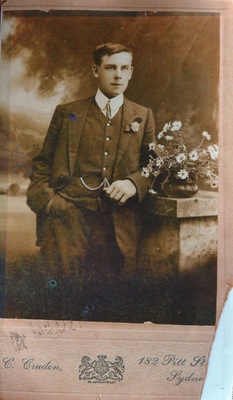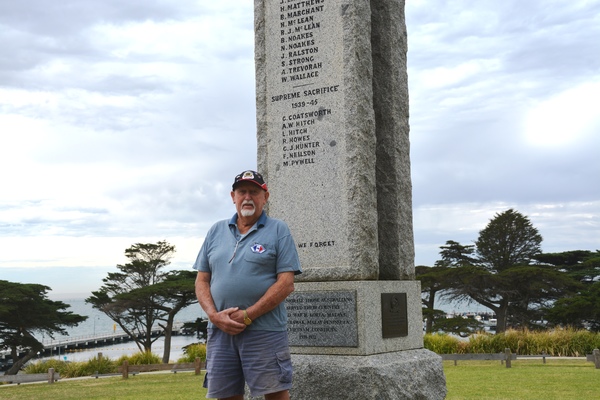By Luke Voogt
A DNA test has identified missing Geelong-born soldier Alfred Thompson almost 102 years after he died in the Battle of Fromelles.
Oldest living relative Brian Thompson only discovered his great uncle Alfred a few years ago, when the Fromelles Association of Australia tracked him down.
“It’s unreal,” the 80-year-old from Portarlington said.
“I’d never heard of him. It’s something that’s just come out of the blue.”
He still remembers answering a call from the association’s researcher Margaret O’Leary, who requested a DNA sample.
“That’s the only time a woman’s said to me in 80 years, ‘Thank God I’ve found you’,” he said.
“They’re fanatical people. It’s unreal the amount of work they do trying to find every solider that’s been killed.”
So Brian swabbed his cheeks, with his wife as a witness, and sent the sample to the Netherlands for testing a year ago.
He all but forgot the test until last week, when eldest son Wayne phoned him while he was playing lawn bowls at Port Fairy.
“I was jumping around,” he said.
In his excitement Brian held up the game, so he called Wayne back later when the enormity of the discovery sunk in.
“I thought it was great. I’m happy to have done my bit.
“I’m just sorry that he was so young to die. He’s not the only one – there were thousands.“
Private Alfred Thompson, 23, was one of 5,533 Australians who died during 1916 in the Battle of Fromelles, a disastrous British feint to draw German troops from the Somme.
German machine gunners mowed down Australian soldiers in what the Australian War Memorial describes as the worst 24 hours in the country’s history, military or otherwise.
Alfred was one of 250 soldiers the Germans buried in an unmarked grave.
The Fromelles Project last week identified the remains of nine Australians using DNA, including Alfred, leaving 91 of the 250 still unidentified.
Alfred was born Geelong in 1893, later growing up and working as a farmer in the outer-Sydney suburb of Warwick Farm.
His distraught mother wrote to the Australian Army seeking news of him following his death.
“Enclosed are 2 slips showing that my son’s body was taken by the Germans, as when the stretcher bearer went back to look for him, after takeing (sic) his mate (George Orchard) to the station his body was nowhere about,“ she wrote in a letter.
“The flower of this country have been taken while the pleasure seeker and shirker stay behind,“ another letter reads.
Brian was born 22 years after Alfred’s death and his grandparents raised him in Williamstown.
“My grandfather and Alfred have got different mothers but the same father,” he said.
“They never mentioned things like (the war) to children I suppose.”
Brian has a single, now-treasured photo which he believes depicts uncle Alfred on his 21st birthday.
He plans to travel to Fromelles with his wife and three children to pay tribute to Alfred and his fellow soldiers on 19 July, after helping to solve the century-old mystery.
“They were all young Australians that never had much of a life,” Brian said.








